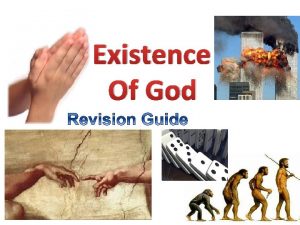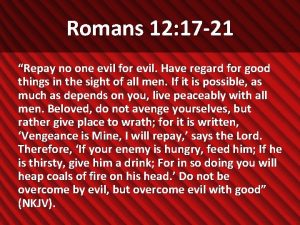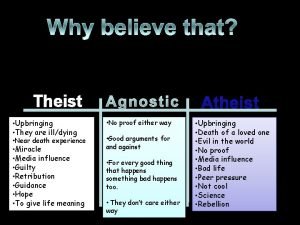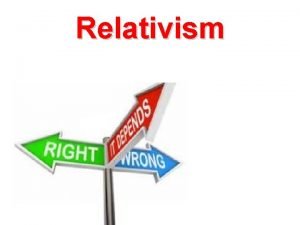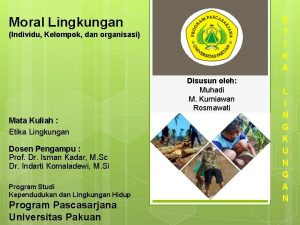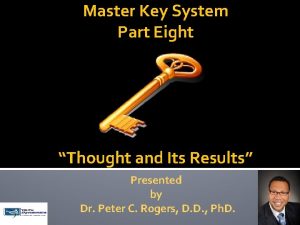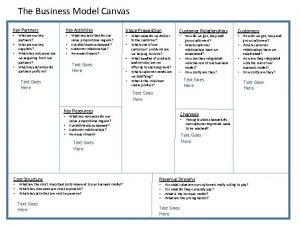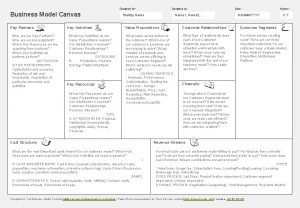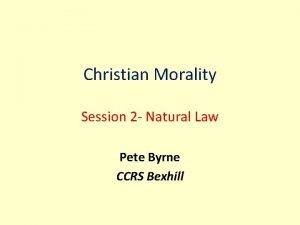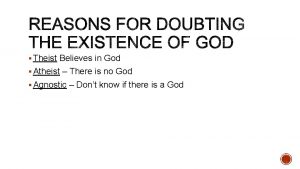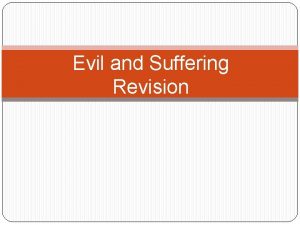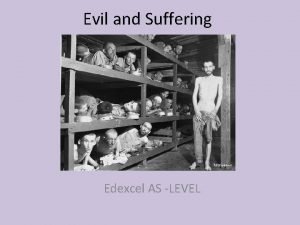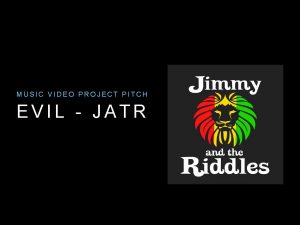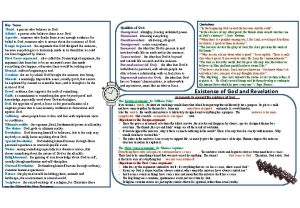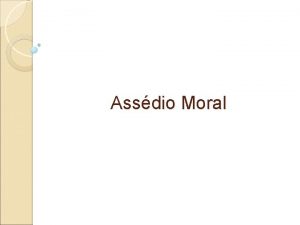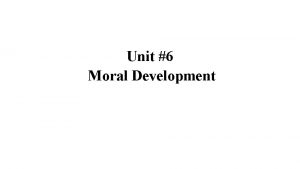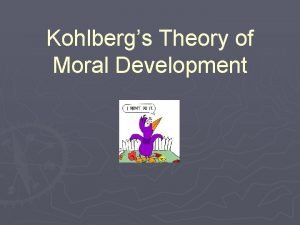Key Words Theist Atheist Natural Evil Moral Evil















- Slides: 15

Key Words Theist Atheist Natural Evil Moral Evil Omnipotent Omniscient Omnibenevolent l l Inconsistent Triad Theodicy Privation Epistemic distance

Starter Memory Master: Augustinian Theodicy.

Lesson Aim To learn about a different solution to the problem of evil and suffering: the Irenaean Theodicy.

What do we know already? ? ? ?

The Irenaean Theodicy (130 -202) l l l The Augustinian theodicy is a soul deciding theodicy. The Irenaean theodicy is soul making theodicy. This means that Augustinian theodicy is concerned with judgment. Irenaeus is more concerned with the development of humanity.

l l Work called: Against Heresies………. Forward looking theodicy. 2 stages in creation: 1) ‘Image of God’. 2) ‘Likeness of God’ Two main aspects: 1. Suffering is a necessary part of God’s created universe (X perfect paradise)– reach 2 have willingly cooperate – meant = free will. it is through suffering that human souls are made noble – the world is a ‘vale of soul making’ – a person-making world (John Hick). 2. One of the ways in which this ‘test’ is carried out is through faith – God’s purpose cannot easily be discerned, but believers continue to believe despite the evidence. They freely become aware of and accept God. This faith becomes a virtue. John Hick (who reformulated the Irenaean theodicy) calls this lack of understanding an ‘epistemic distance’ (a distance from knowing).

l l l We are in an immature moral state, though we have the potential for moral perfection. Evil is necessary for our moral development. Throughout our lives we change from being human animals to what Irenaeus called ‘children of God’. This is a choice made after struggle and experience, as we freely chose God rather than our baser instincts. God brings in suffering for the benefit of humanity. From it we learn positive values, and about the world and around us. Man is redeemed through his own actions.

Suffering and evil are; l Useful as a means of knowledge. Hunger leads to pain and leads to a desire to feed. Knowledge of pain prompts humans to seek to help others in pain (moral growth). l If we were programmed to ‘do the right thing’ there would be no moral value to our actions. ‘We would never learn the art of goodness in a world designed as a complete paradise’ (Swinburne). John Hick agrees (pg. 46 Hick).

Strengths l Evil can facilitate growth – it does develop a deep moral understanding. l Allows room for the evolutionary theory.

Problems/criticisms l Irenaeus argued that everyone goes to heaven. This would appear unjust, in that evil goes unpunished. Morality becomes pointless.

l Why should ‘soul making’ involve suffering? The ‘suffering is good for you’ argument seems unjust, especially in the suffering of innocents. Argument seems to be a utilitarian one – do the ends justify the means? ? l Hume was critical: ‘Could our world be a little more hospitable and still teach us what we need to know? Could we not learn through pleasure as well as pain? Indeed – extent human suffering!!! l Can suffering ever be justified on the grounds of motive? Suffering does not sit easily with the concept of a loving God. How can we look at the suffering of the innocent and maintain that God love us? ? D. Z. Phillips in The Concept of Prayer *******

Tasks: l Tyler Notes ……. . Pg. 50 -52

l l l Some philosophers offer the free will defence (FWD) as an answer to the problems posed by theodicies. The FWD argues that God has made human beings free agents, free to love God, but also free to choose evil. Others propose a process theodicy. Process theologians have adopted a panentheist view of God. They believe that God and the world are inextricably linked. God suffers alongside His creation. We will be considering FWD and Process Theodicy in more detail in later sessions.

Plenary l Opposing pairs Augustine vs Irenaeus

Mother Julian of Norwich ? ? put here? ? Devout Christian writer 14 th century – ‘Revelations of Divine love’. l Suffering is part of God’s plan. l Christianity religion suffering as central to it – suffering allows get closer to God. l Her suffering consistent God’s love. l
 Do not answer
Do not answer Atheist prayer
Atheist prayer Romans 12 21
Romans 12 21 Indifference to evil is evil
Indifference to evil is evil Moral evil examples
Moral evil examples Moral evil
Moral evil Moral evil
Moral evil Human choice cuts
Human choice cuts Moral individu dan moral kelompok
Moral individu dan moral kelompok Moral de esclavos y moral de señores
Moral de esclavos y moral de señores Bambrough moral scepticism and moral knowledge download
Bambrough moral scepticism and moral knowledge download Is the master key system evil
Is the master key system evil Business model sample
Business model sample Key partners key activities key resources
Key partners key activities key resources Aristotle virtue ethics
Aristotle virtue ethics Natural law ethics
Natural law ethics

